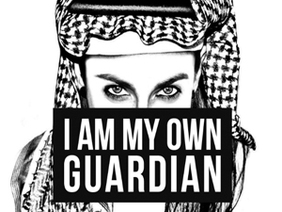 Meenakshi Sathish Editor-in-Chief Saudi Arabia’s rule on male censorship has been tolerated for long enough. The country’s women are done with the patriarchy that comes with the outdated law of having to be escorted by a male relative or husband in order to be out on public. Men that women can leave the house with include a father(in-law), husband, brother, or son. The idea that a woman’s son has more of a say on his mother’s whereabouts more than his mother explains the ridiculousness of the law. In a fight for their rights, women are using social media and hashtags as their arsenal. The hashtag, Stop Enslaving Saudi Women, is full of women tweeting out their concerns and anecdotes of how male guardianship is negatively affecting their lives. One of the most recent stories to surface the feed is about a woman who is forced to divorce her husband, despite her pleas, because her uncles do not think the couple is compatible. Other tweeters virtually shout against the event calling it a legal battle. User @Ifiguredit tweets, “You know, this legal battle started because she got married without her father's permission. Bear this in mind” to let others know the lack of freedom women have. As many other users have mentioned, the male guardianship treats woman like a second-hand citizen and a minor in their own country. The guardianship gives Saudi Arabians the liberty to abuse women without a penalty. Women being chained home and needing permission to live out their daily life puts their rights into the hands of men. That is not progress as it restricts women from having the freedom to live their own lives.
Inevitably, there is opposition targeting the movement. Some say that the guardianship is supposedly protecting the “diamonds” (as on Twitter user tweets as he objectifies women as shiny objects) of society. Others say that these users are actually foreigners who are trying to wreck Saudi Arabian culture and brainwash women. A recent article from Heatst makes it a point to say that the issue of male guardianship in the Kingdom is a feminist issue and not a fauxminist. The treatment of women and the lack of rights they have is certainly an issue of women’s rights; it is not just women shouting into the void asking for attention. Comments are closed.
|
Archives
March 2017
Categories
All
|

